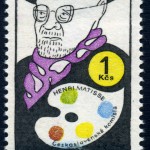 Do you ever feel like your life is going around and around on the same track, constantly moving, but taking you nowhere new? And yet, the repetitive carousel ride is one of the great joys of childhood. Perhaps what is most wonderful about riding a carousel is not the circular motion, but the opportunity to wave at the loved one who, again and again, disappears and comes into view.
Do you ever feel like your life is going around and around on the same track, constantly moving, but taking you nowhere new? And yet, the repetitive carousel ride is one of the great joys of childhood. Perhaps what is most wonderful about riding a carousel is not the circular motion, but the opportunity to wave at the loved one who, again and again, disappears and comes into view.
Who or what has put in a welcome reappearance in your life lately?




